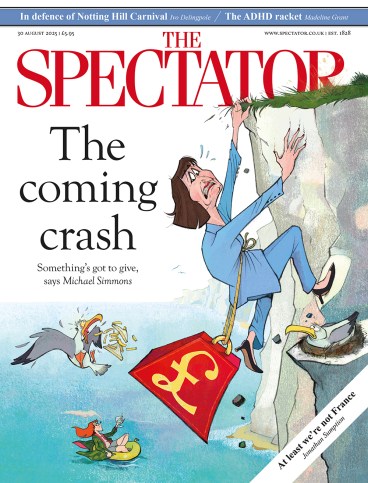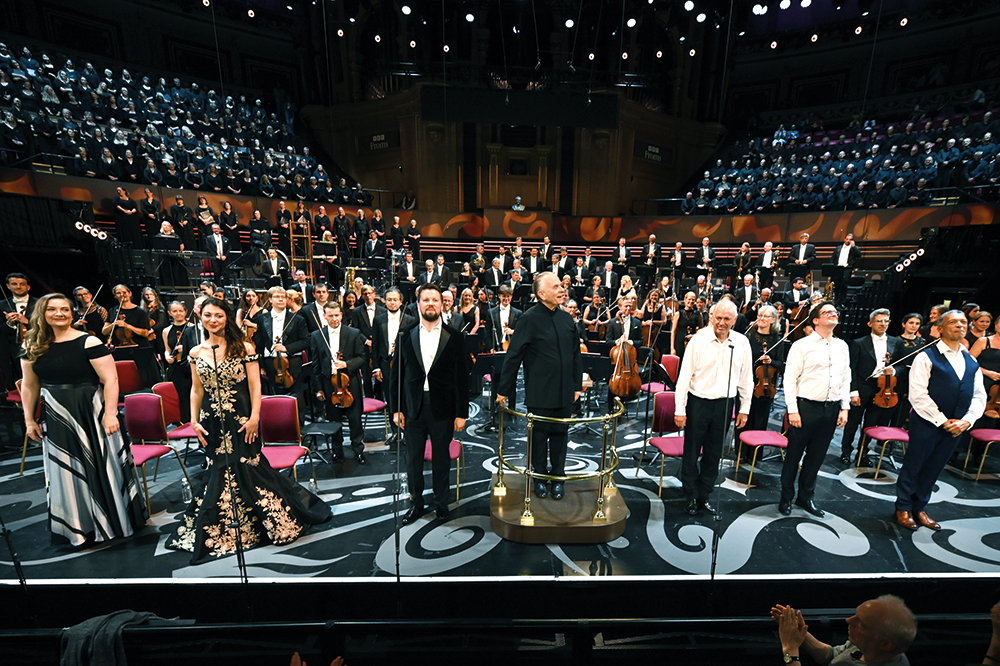
Regarding Frederick Delius, how do we stand? In the 1930s, Sir Henry Wood believed that Proms audiences much preferred Delius to Holst, and most critics back then would have described him as a major British composer. Times change: if you took your music GCSE in the late 1980s, you’ll have sensed that the Bradford lad was no longer quite up there. But you might well have been taught by people who still remembered him as a giant, and there was also the legacy of that greatest of composer biopics, Ken Russell’s Song of Summer, in which Delius’s music explodes in sunbursts of passion and colour against Russell’s austere black and white cinematography.
If you’d told a Promenader in 1950 that Delius would be forgotten they’d have inched away from you
Anyway, it’s 2025, and even those lingering cultural memories have flown like late swallows. Scrolling through social media after this Proms performance of Delius’s Nietzsche oratorio A Mass of Life I found one (presumably youngish) commenter remarking that they had never heard of the composer. And yet people still insist (well, bores do, anyway) that the classical canon is set in stone. If you’d told any Promenader in 1950 that within a century Delius would be forgotten and that Mahler – Mahler! – would be as popular as Beethoven, they’d have inched away from you, calling quietly for a nurse.
Delius hasn’t completely vanished, but he’s certainly shrunk – a composer of operas, symphonic poems and large-scale choral works reduced to a handful of lollipops on a relaxation playlist. Sir Mark Elder is one of the few A-list conductors who has kept the faith and a decade ago in Manchester he gave a rapturous performance of Delius’s Song of the High Hills, which emerged as little less than an English Eine Alpensinfonie. Still, nothing about this year’s Proms programme was more unexpected than the appearance (for the first time since 1988) of A Mass of Life, with Elder conducting.
My first instinct was to question the BBC’s motives. The 2011 Proms included Havergal Brian’s Gothic symphony and insiders whispered that it was an attempt to drive a stake through Brian’s cult reputation by demonstrating, live on Radio Three, that his music was beyond redemption. (It didn’t work, of course. Cults don’t operate that way.) Hand on heart, though, I don’t think that was the plan here. Elder was too committed and the soloists were just too good – Jennifer Davis, Claudia Huckle, David Butt Philip and (as Zarathustra) Roderick Williams, a singer incapable of giving an insincere performance, with a voice drenched in sunlight. Two massed choruses filled the choirstalls: the BBC Symphony Chorus and the London Philharmonic Choir.
True, the orchestra was the BBC Symphony, and with them you never quite know if you’re going to get world-beating virtuosity or a bored radio orchestra doing the contractual minimum. Good news: Elder hurled himself straight into Delius’s opening invocation and choir and orchestra leaped to meet him, with exultant choral singing and orchestral playing of such lyricism and lustre that you might almost have been listening to the LSO. Elder knows exactly how to support voices, and Delius’s tender, lapping accompaniments were as delicate as baby’s breath.
The big revelation was the sheer confidence with which Delius stepped up and claimed his Wagnerian inheritance. All the familiar fingerprints were there – the iridescent woodwind harmonies; that languishing chromatic way of tailing off a melody. But there was such verve, too; such vaulting rapture as Delius wrapped himself around Nietzsche’s superheated poetry. It couldn’t last. Someone – Donald Tovey? Michael Kennedy?– once suggested that Delius’s inspiration lives in the moment, or not at all. It soars, or it’s sunk. Even Elder couldn’t sustain 100 minutes of unalloyed ecstasy, and A Mass of Life sags markedly before its (suitably epic) finish. But the same goes for Mahler’s Eighth Symphony, and it’s curious that we’re so much more likely to hear one work than the other. Can’t we have both?
In Oxfordshire, Waterperry reaffirmed its reputation as the least fussy of summer opera festivals with an open-air Don Giovanni that punched far above its weight. The stage represented three Pullman cars and the period was the 1920s. Basically Mozart on the Orient Express, then, not that the concept really mattered beside John Wilkie’s inventive direction, Charlotte Politi’s balletic conducting and some delightfully sweet and zesty singing across the board.
One of the three women usually emerges as the emotional centre of any Don Giovanni and in this case it was Georgia Mae Ellis as Elvira; a study in wounded dignity. Edmund Danon was a remarkably sinister Giovanni – a real predator, with a devilish vocal swagger – and Emyr Wyn-Jones’s blokeish Leporello channelled One Man, Two Guvnors. John Savournin takes over as artistic director at Waterperry next season. If he can sustain the musical standards and can-do spirit of this cracking little festival, that’s going to be a treat.







Comments